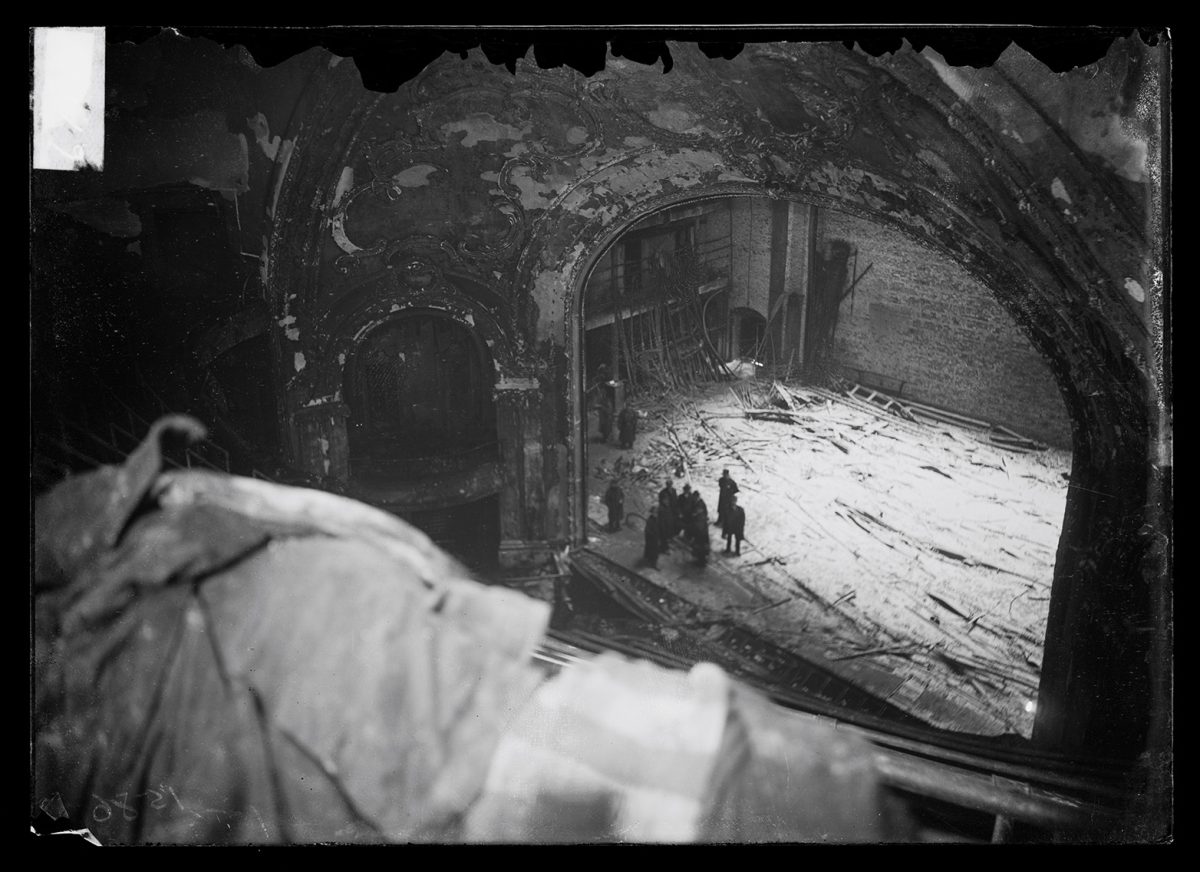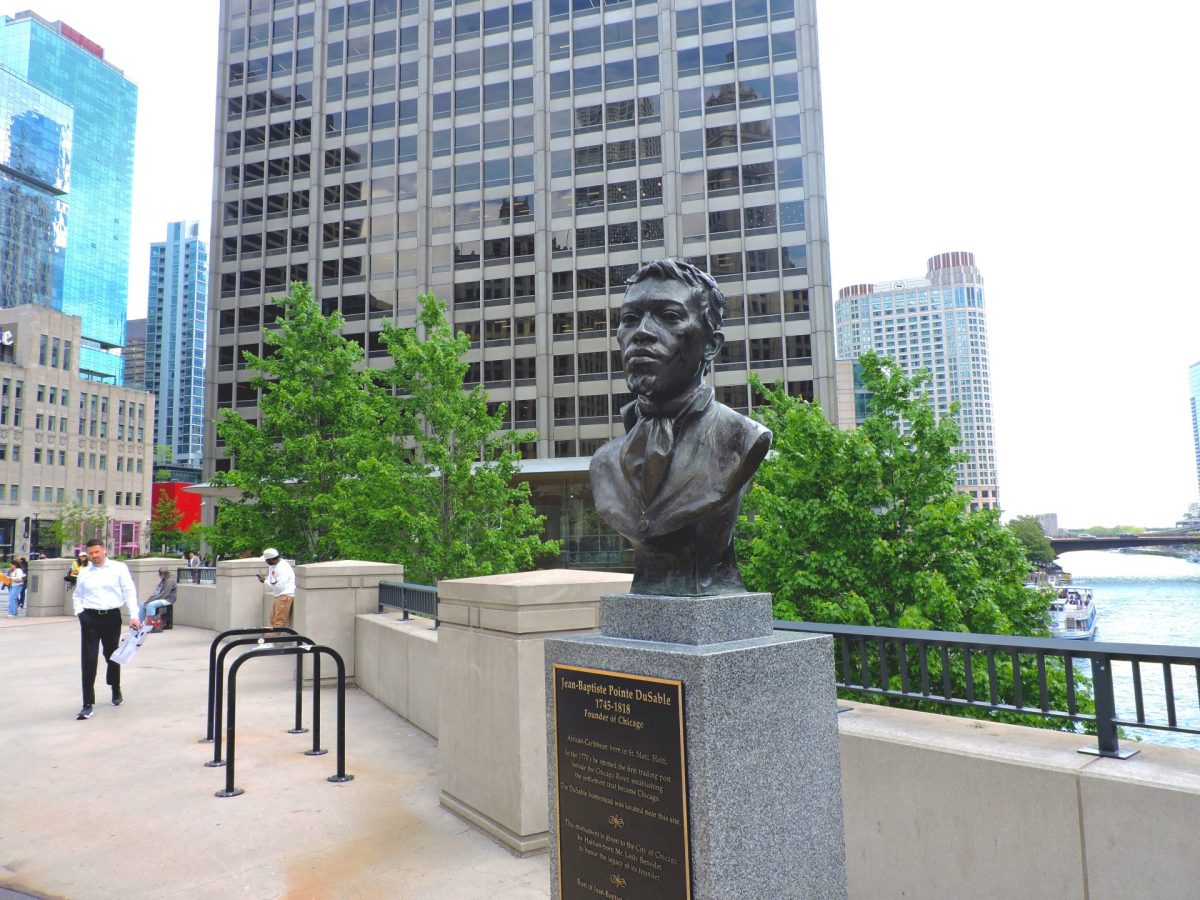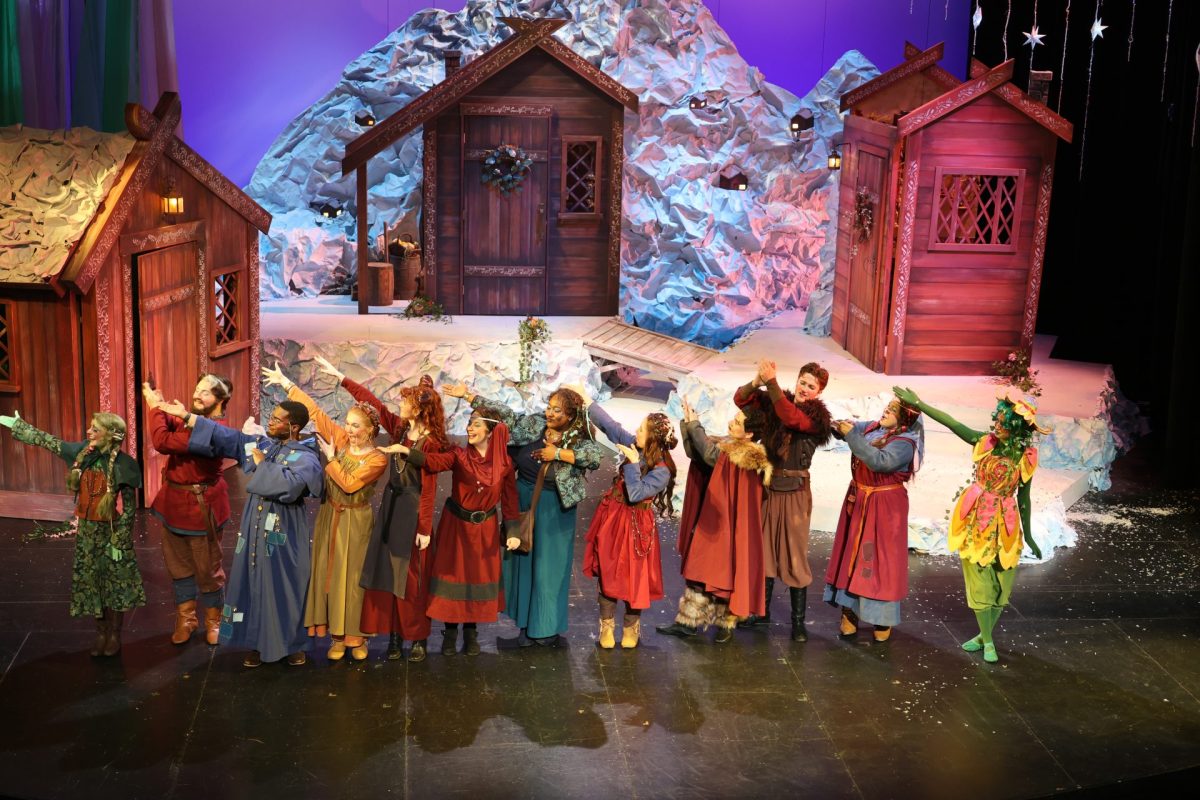December will mark the 120th anniversary of the Iroquois Theater fire, the deadliest theater fire in U.S. history.
The Nederlander Theater stands in its place today, a downtown Chicago venue that has hosted many high-profile productions, such as “Wicked” and “Hamiliton” among many others.
Even 120 years later, the smoke of the past still lingers on the minds of those who know the theater’s history.
“I think it’s important to remind people what happened,” said Tricia Hermes, a DePaul University professor who teaches English and Chicago history through ghost stories and folklore. “I think these places where these things happen, they become kind of sacred to us.”
The afternoon of Dec. 30, 1903, a fire broke out in the upper-catwalks of the theater’s backstage when a stagelight’s faulty wiring sent sparks showering down on the highly flammable set pieces and curtains below. People were trampled underfoot as massive crowds tried escaping at once through narrow doors and hallways. As the flames grew, many found themselves with nowhere to go.
In all, 602 died in the flames, many of them children who were out of school for the holidays.
Adding insult to the tragedy was the role political corruption played on that dark day. The extent of which is covered by author Nat Brandt in his book Chicago Death Trap: The Iroquois Theater Fire of 1903.
Brandt wrote, “During the 16 months preceding the fire, Chicagoans had seen almost daily headlines about corruption among the building inspectors, including charges of bribes, incompetence, and political pressures to exempt some properties from inspection altogether.”
According to Brandt, owners of the Iroqouis chose to forgo many safety regulations in order to open their doors in time for the lucrative holiday season, officially opening Nov. 23, 1903. On the day of the fire, the Iroquois had no fire alarms, sprinklers or any sort of water connections. Fire escape stairs were not installed on the building’s exterior overlooking the alleyway.
In the chaos of the moment, many made the choice between perishing in the fire or falling to their death below.
Many chose the fall.
The only arrest made after the tragedy was a pick-pocket caught taking items off the dead. Historians note no one in a position of power was held accountable for their role in this massive loss of life — not the building owners, not the inspectors and certainly not the politicians.
The event would forever change building and fire safety regulations in Chicago and across the country.
Did this city truly learn its lesson?
“Not that well,” Hermes said. “‘Here is $50 under the table. Here is a little kick-back for this or that.’ That’s the Chicago way.”
It’s an oft-quoted cliche that “every theater has a ghost.” Cliche or not, many believe those who died there still remain.
Adam Selzer is a Chicago based author and tour guide featured on such paranormal programs as “Mysteries at the Museum” and “Haunted History.” He also spent time in the palatial Nederlander, learning its history and the spooky tales attached to it.
“Theaters are big, cavernous buildings, often full of dark hallways and weird noises,” Selzer said. “If you ask a theater person for a ghost story, there’s a pretty good chance they’ll tell you one.”
Selzer was present for several ghost-hunts at the theater about 15 years ago, during the production of the long-running hit musical “Wicked.” According to Selzer, the cast would often report the most haunted area of the theater seemed to be the bathroom in the dressing room of the actor who played Boq.
“The toilet would flush by itself, and then they’d hear a little girl giggle,” Selzer said. “I was nowhere near that dressing room at the time, but I did think I heard a giggle in an empty alcove one time.”
Haunted or not, the tragedy of the Iroquois Theater fire left an indelible mark on the city.
Bree Bartman is a Chicago resident and part-time ghost hunter. As the anniversary of the fire approaches, she uses it as a chance to not just remember the events of that day but the spirits that may yet remain.
“We always try to be respectful of the space and property,” Bartman said. “Life in general is so incredible. Our spirit and energy never really go away.”
In these last few months of 2023, if you happen to find yourself catching a show at the Nederlander, revel in the architectural beauty of the place, just as those who were there before us did.
As you turn off your cellphone and refrain from flash photography to respect the actors on stage, take a moment in kind to think about those who perished there 120 years before.
Some may be there to enjoy the show with you.








